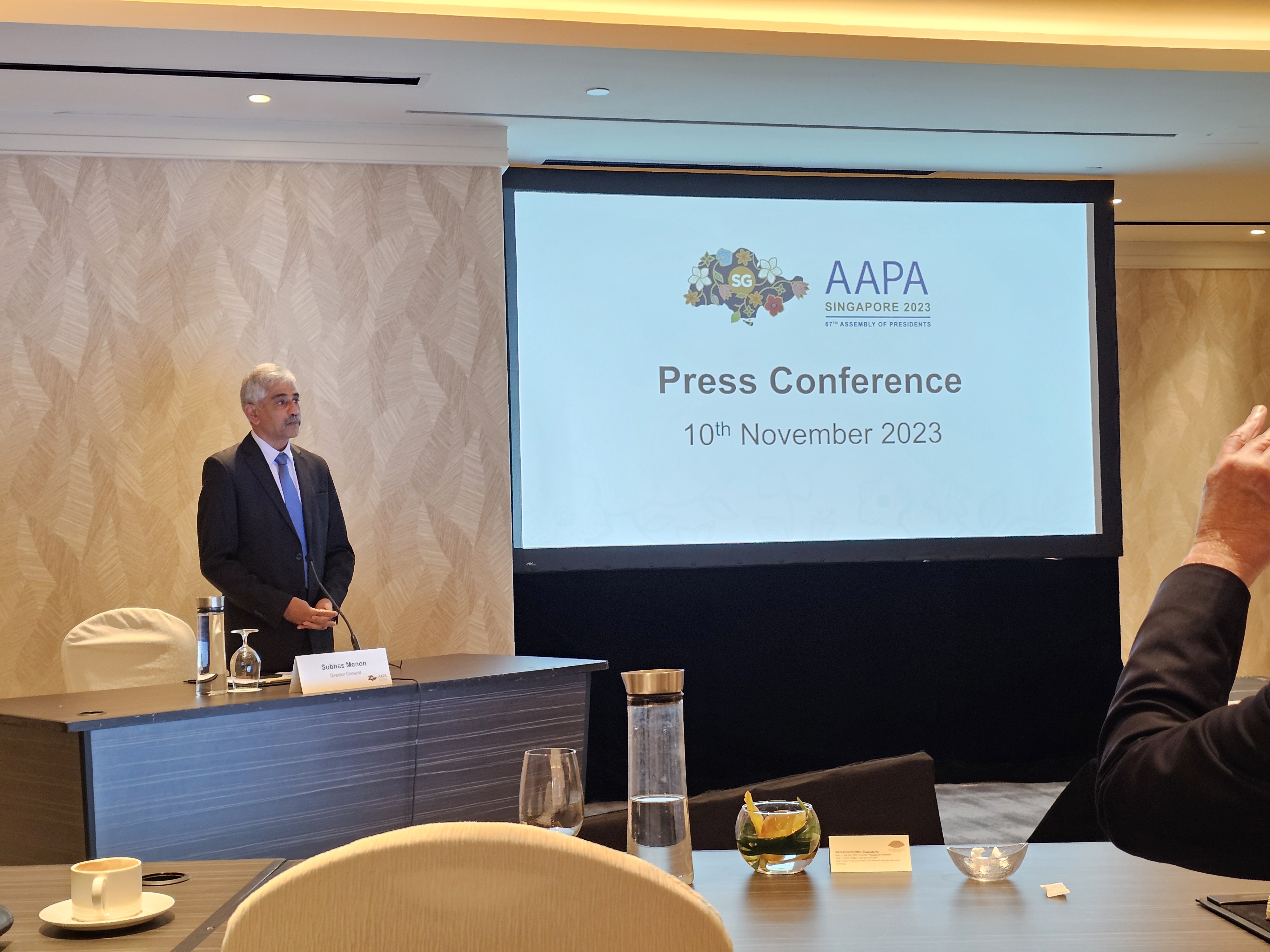AAPA passes resolutions on SAF target and aviation safety
A collective goal of 5% sustainable aviation fuel use by 2030
By Dom Galeon
SINGAPORE – The Association of Asia Pacific Airlines (AAPA), at the end of its 67th Assembly of Presidents, passed a resolution to adopt a collective target of five percent sustainable aviation fuel (SAF) use by 2030 among its members in the region. This is the first ever resolution the AAPA has adopted with regard to SAF use by airlines operating in the Asia Pacific.
“This is an aspirational goal,” says AAPA Director General Subhas Menon. “It is a challenging target, but we have to start somewhere—and 2030 is a good place to start if you want to achieve ‘net-zero’ [carbon emissions] by 2050.”

Menon recognized that SAF adoption of airlines largely depends on the availability of its supply, which globally is at 2%. “Whatever [the airlines] are consuming today, at least 5% of that should be SAF,” he says.
But the AAPA recognizes that something has to be done in order to improve sustainability in the airline industry. “They are well aware of the cost impact,” Menon explains, referring to AAPA member airlines. “But if it is something you have to do, you have to do it. Of course we have to do whatever we can to bring the costs down, which is why we have to work with the government and suppliers” and to provide incentives for production as well as proof-of-demand for SAF.
Apart from a target for SAF use, the AAPA also passed two other resolutions. One covers aviation safety, which translates to working with relevant national regulators to improve safety culture particularly in areas with inherent terrain, visibility, and situational weather challenges. The third resolution covers the impact of regulations that disproportionately affect operations, overall connectivity, and schedule reliability of flights in the Asia Pacific region. The AAPA calls on governments to avoid such unilateral measures.
At the core of this year’s Assembly of Presidents by the AAPA, hosted by Singapore Airlines, was sustainability. The annual conference ended on a positive and uplifting note, with the region’s airline industry looking at a full recovery sooner than later. This year, the numbers are promising, with most airline operations back to pre-pandemic levels.
The AAPA member airlines include Air Astana, Air India, All Nippon Airways, Bangkok Airways, Cathay Pacific, China Airlines, EVA Airways, Garuda Indonesia, Japan Airlines, Malaysia Airlines, Philippine Airlines, Royal Brunei Airlines, Singapore Airlines, and Thai Airways International.